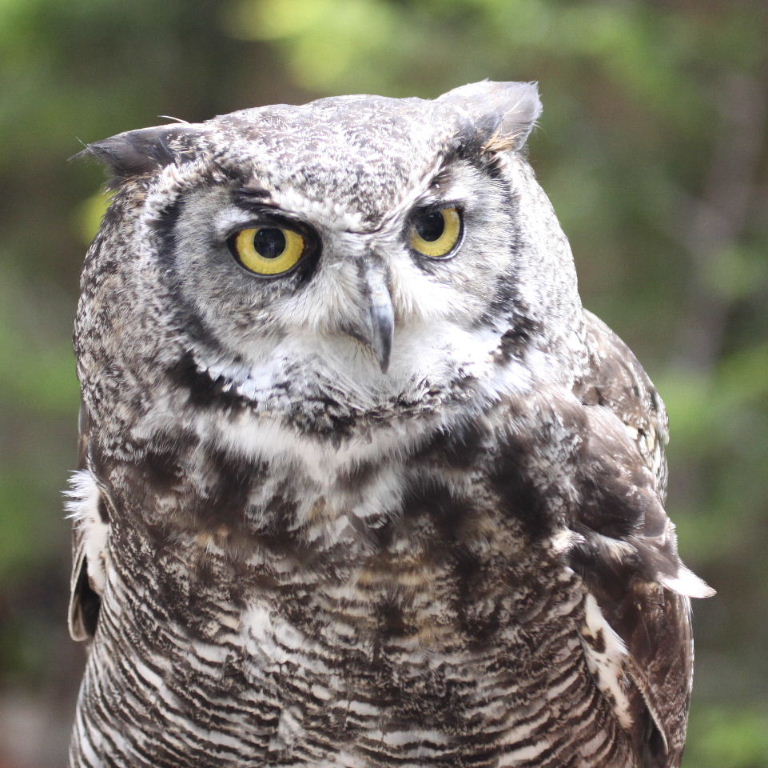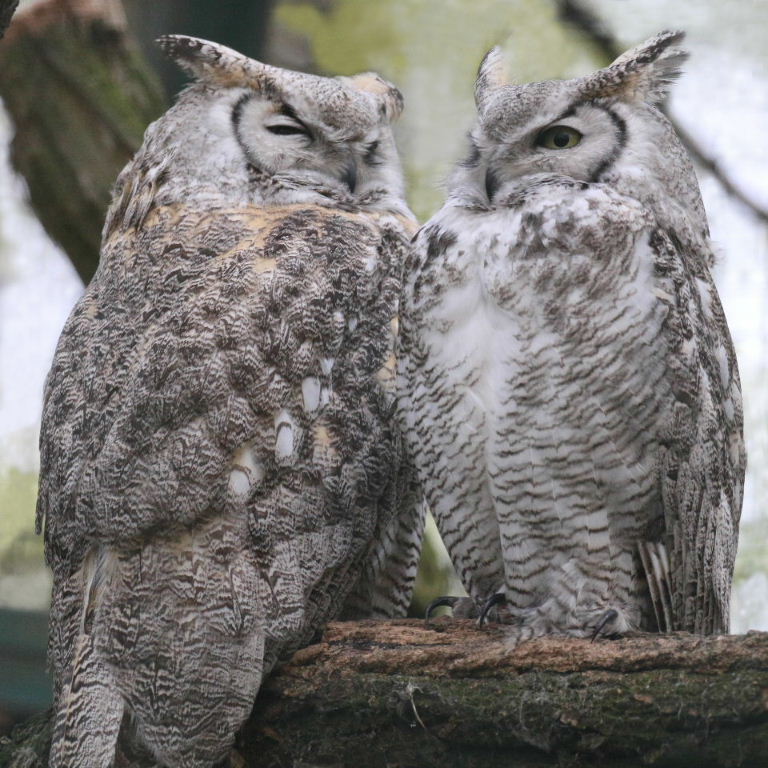Great Horned Owl Bubo virginianus


The Great Horned Owl is native to the Americas, from sub-Arctic regions through to southern South America.
A little similar to the Eagle Owls of Europe/Asia, it has yellow rather than orange eyes, a much stronger bordered facial disc and a
different plumage pattern.



The "horns" aren't horns at all, nor ears, but tufts of feathers.


Owls can't move their eyes but they can turn their heads some 270 degrees to see all around them.
They have excellent eyesight in daylight and low light/night.



Its prey is also similar to the Eagle Owls, hunting mainly at night for rodents, other small mammals, birds
(small and large including water birds and other birds of prey) and reptiles. It has been known to take even medium-sized dogs.
 Above is the South American subspecies B. v. nacurutu, the only subspecies with amber rather than yellow eyes.
Above is the South American subspecies B. v. nacurutu, the only subspecies with amber rather than yellow eyes.

 Owlet in Texas by Dr Harsha Vardhan Reddy.
Owlet in Texas by Dr Harsha Vardhan Reddy.




